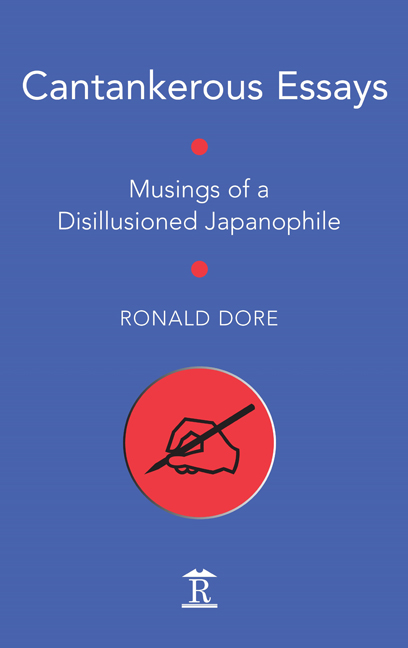Book contents
- Frontmatter
- Dedication
- Contents
- Introductory Musings
- Addendum 23 January 2015
- Chapter 1 THE RETURN OF THE NEAR-NATIVE
- Chapter 2 THE SOCIAL CONDITIONS FOR ECONOMIC PERFORMANCE AND THE PIKETTY BOOM
- Chapter 3 OPMF, CENTRAL BANK CONSERVATISM AND FINANCIAL ECONOMICS
- Chapter 4 JAPAN AND CHINA:COLLISION COURSE
- Chapter 5 JAPAN AND NORTH KOREA
- Chapter 6 A NEW BEGINNING?
- Chapter 7 THE NEW COLD WARS
- Chapter 8 FRIENDS, ALLIES AND ENEMIES
- Chapter 9 HUMAN PROGRESS…?
- Index
Chapter 8 - FRIENDS, ALLIES AND ENEMIES
Published online by Cambridge University Press: 04 May 2022
- Frontmatter
- Dedication
- Contents
- Introductory Musings
- Addendum 23 January 2015
- Chapter 1 THE RETURN OF THE NEAR-NATIVE
- Chapter 2 THE SOCIAL CONDITIONS FOR ECONOMIC PERFORMANCE AND THE PIKETTY BOOM
- Chapter 3 OPMF, CENTRAL BANK CONSERVATISM AND FINANCIAL ECONOMICS
- Chapter 4 JAPAN AND CHINA:COLLISION COURSE
- Chapter 5 JAPAN AND NORTH KOREA
- Chapter 6 A NEW BEGINNING?
- Chapter 7 THE NEW COLD WARS
- Chapter 8 FRIENDS, ALLIES AND ENEMIES
- Chapter 9 HUMAN PROGRESS…?
- Index
Summary
ONE OF THE ways of looking at our world is as a pattern of alliances and confrontations. The patterns are formed from a variety of elements. Former colonial relations, for example, are still an important determinant of British-Indian relations, though much less so are British-Nigerian relations where the colonial power's ‘civilizing influence’ had a much shorter time to do its work. Common language is, of course, crucial. The pro-American sentiment of the Anglophone members of the British Commonwealth is a crucial factor in UK-US relations, though much more crucial for Britain than for America. There was much talk of the ‘special relationship’ when Bush and Blair were driving into the Iraq War. At the time, Sir Roderick Quentin, a wise old diplomat who had been British ambassador in Moscow and later chairman of the Braithwaite Joint Intelligence Committee, wrote an op ed in the Financial Times to take on the Blair argument that retaining the trust of Bush was the British categorical imperative and therefore we must get our boots on and get in there to help the Americans make a mess of Iraq. It was nonsense, he said. The only Brits who were truly dependent on the US were the submarine commanders who couldn't fire off their missiles until the Americans gave them the codes. But in 2003, at the height of the back-slapping camaraderie of Bush and Blair, the good sense of people like him was overwhelmed by emotion. Didn't the Americans twice save Britain's bacon when she was on the verge of defeat?
Clearly, America's most important alliance today is the much more special relationship with Israel - most important because it dominantly shapes America's relations with most of the rest of the world bar Latin America. It is what leads to the absurdity of the American policy towards Syria. Assad, whatever massacres his father may have been responsible for, ran the only secular regime in the Middle East. He may have leaned towards the Shiites rather than the Sunni, but he promoted their peaceful coexistence. Then came the so-called ‘Arab spring’. America's tolerated despots went down like ninepins to the force of popular revolt, Mubarak, then Gaddafi. Their fall was hailed in Washington as a great ‘Victory for Democracy’. Assad's sin was that he didn't see it that way.
- Type
- Chapter
- Information
- Cantankerous EssaysMusings of a Disillusioned Japanophile, pp. 144 - 150Publisher: Amsterdam University PressPrint publication year: 2015



